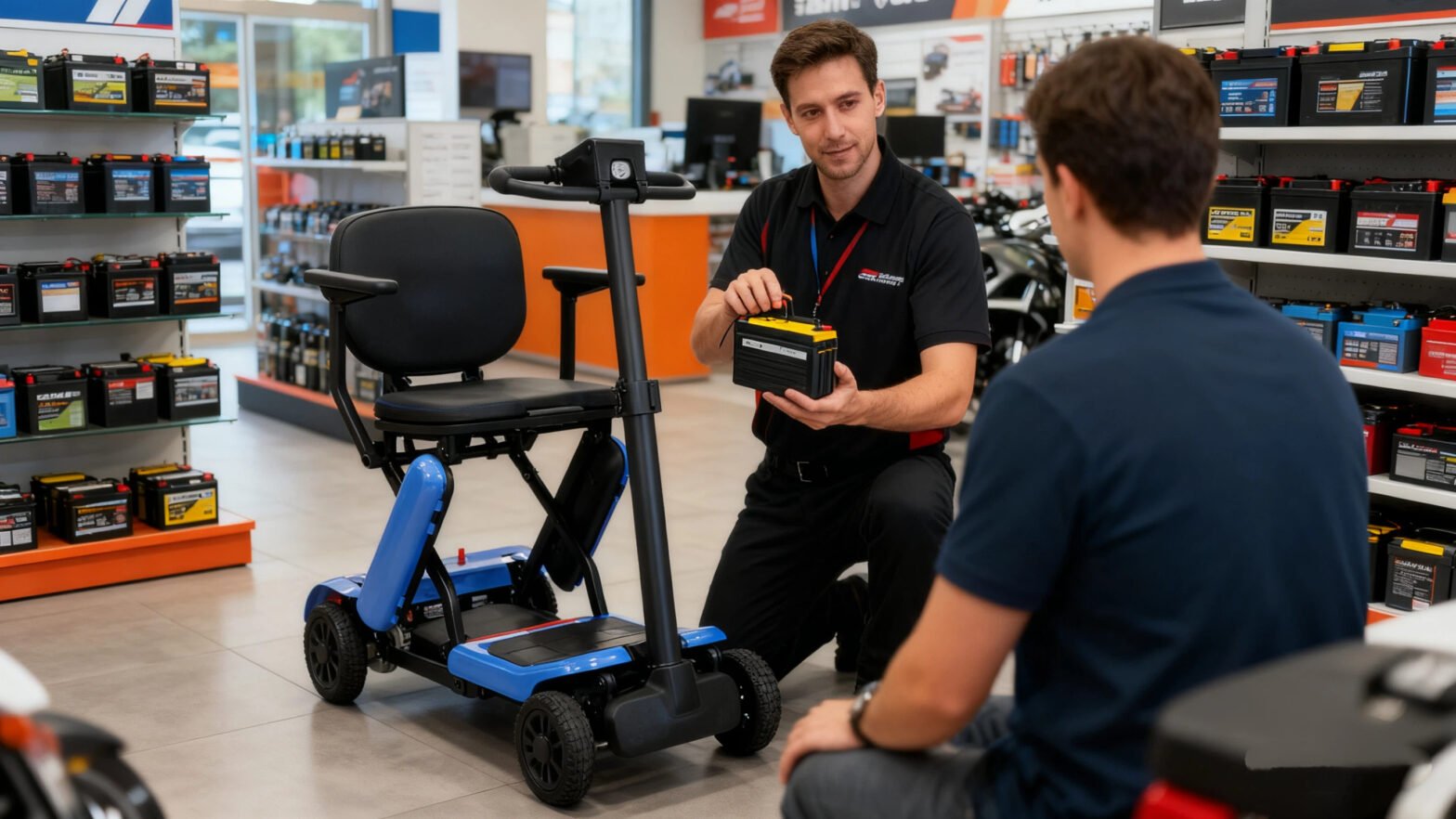
Mobility scooters are lifelines for many, offering independence and freedom to navigate daily life. But when the battery dies, finding a replacement can feel overwhelming. Not all batteries are created equal, and choosing the right seller matters for performance, safety, and value. This guide breaks down the best places to buy mobility scooter batteries, along with tips to ensure you make a smart purchase.
One of the most trustworthy options is to buy directly from the scooter’s manufacturer or an authorized dealer. Brands like Pride Mobility, Drive Medical, and Invacare sell replacement batteries through their official websites or partner retailers. These batteries are guaranteed to be compatible with your specific model, eliminating the risk of mismatched voltage or size.
Authorized dealers often employ knowledgeable staff who can answer questions about battery life, charging cycles, and maintenance. They may also offer warranties, ranging from 6 months to 2 years, giving you peace of mind if issues arise. While prices here might be slightly higher than other channels, the reliability and support make this a top choice for those who prioritize quality.
Local or online specialty medical supply stores are another excellent resource. Stores like Walgreens Mobility, Medicaleshop, and SpinLife focus on mobility aids, so their staff understands the unique needs of scooter users. They stock a wide range of batteries, including sealed lead-acid (SLA) and lithium-ion options, to fit different scooter brands and budgets.
Shopping at a specialty store allows you to inspect the battery in person (if buying locally) or benefit from detailed online product descriptions. Many offer fast shipping, and some even provide installation services or guidance over the phone. This channel is ideal for those who want personalized advice without the hassle of sifting through generic products.
Online marketplaces like Amazon, eBay, and Walmart.com offer convenience and a vast selection of mobility scooter batteries. You can compare prices from dozens of sellers, read customer reviews, and find both branded and generic options. Generic batteries often come at a lower cost, making them a budget-friendly choice for those willing to sacrifice some brand assurance.
However, caution is key when shopping on marketplaces. Always check the seller’s ratings and read reviews to avoid counterfeit or low-quality products. Look for detailed product specifications, such as voltage (12V or 24V), capacity (Ah), and compatibility with your scooter model. Many reputable sellers on these platforms offer warranties, so be sure to confirm this before purchasing.
Surprisingly, some local hardware stores (like Home Depot or Lowe’s) and auto parts stores carry mobility scooter batteries. These stores typically stock SLA batteries, which are the most common type for scooters. The advantage here is immediate availability—you can pick up a battery the same day without waiting for shipping.
Staff at these stores may not have specialized knowledge about mobility scooters, so it’s important to know your scooter’s battery requirements beforehand. Bring the old battery with you to match the size, voltage, and terminal type. Prices at these stores are often competitive, and they may honor returns if the battery is incompatible (with a receipt).
Battery specialty stores, such as Batteries Plus Bulbs, focus exclusively on batteries for all types of devices, including mobility scooters. These stores offer a wide range of high-quality batteries, including premium lithium-ion options that provide longer life and faster charging. The staff is usually well-trained and can help you find the perfect battery for your needs.
While prices at specialty stores may be higher, the expertise and quality assurance are worth it for many users. They often offer battery testing services, so you can check if your old battery is truly dead before buying a replacement. Some stores also provide recycling for old batteries, making this an eco-friendly choice.
1)Check Compatibility: Always confirm the battery’s voltage, capacity, and size match your scooter’s requirements. Refer to the user manual or contact the manufacturer if unsure.
2)Consider Battery Type: SLA batteries are affordable and widely available, but lithium-ion batteries are lighter, last longer, and charge faster (though more expensive).
3)Look for Warranties: A good warranty indicates the manufacturer stands behind their product. Aim for at least a 6-month warranty.
4)Read Reviews: Customer reviews can reveal issues with durability, compatibility, or performance that aren’t listed in product descriptions.
5)Compare Prices: Don’t settle for the first option—shop around to find the best balance of price and quality.
Finding a replacement mobility scooter battery doesn’t have to be stressful. Whether you prioritize reliability, convenience, or budget, there’s a purchasing channel that fits your needs. Authorized dealers and manufacturer websites offer peace of mind, while online marketplaces and local stores provide flexibility and affordability.
By doing your research, confirming compatibility, and choosing a reputable seller, you can ensure your new battery keeps your mobility scooter running smoothly for years to come. Don’t let a dead battery slow you down—use this guide to find the perfect replacement and get back to enjoying your independence.
Copyright@ 2026 Nanjing Kangni Smart Technology Co., Ltd. All Right Reserved.